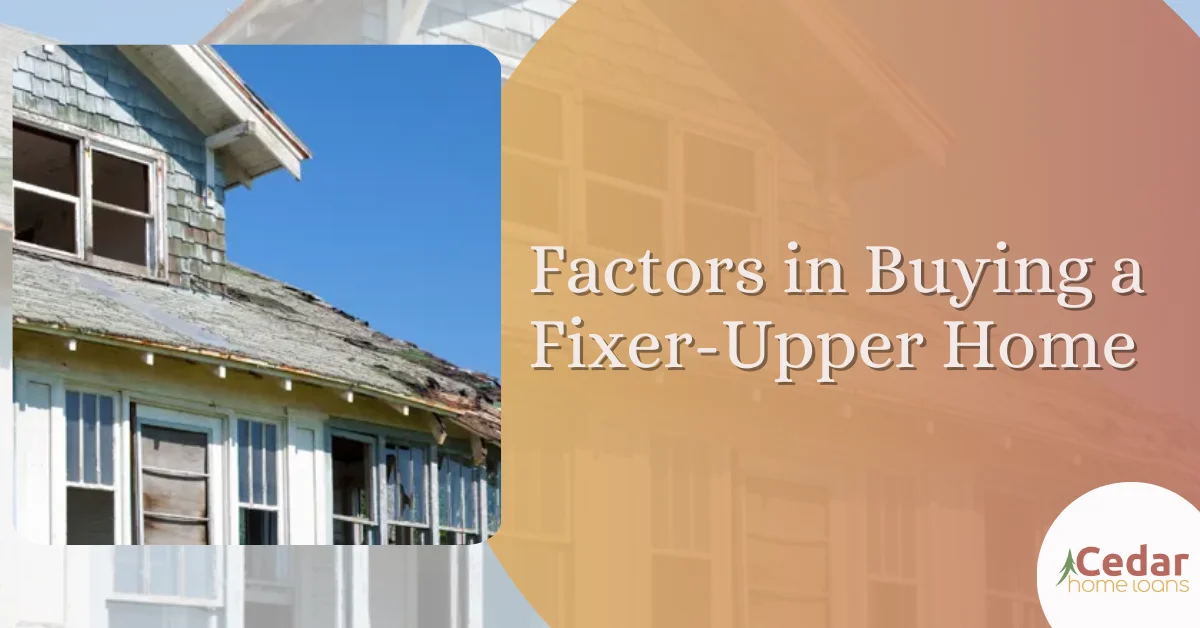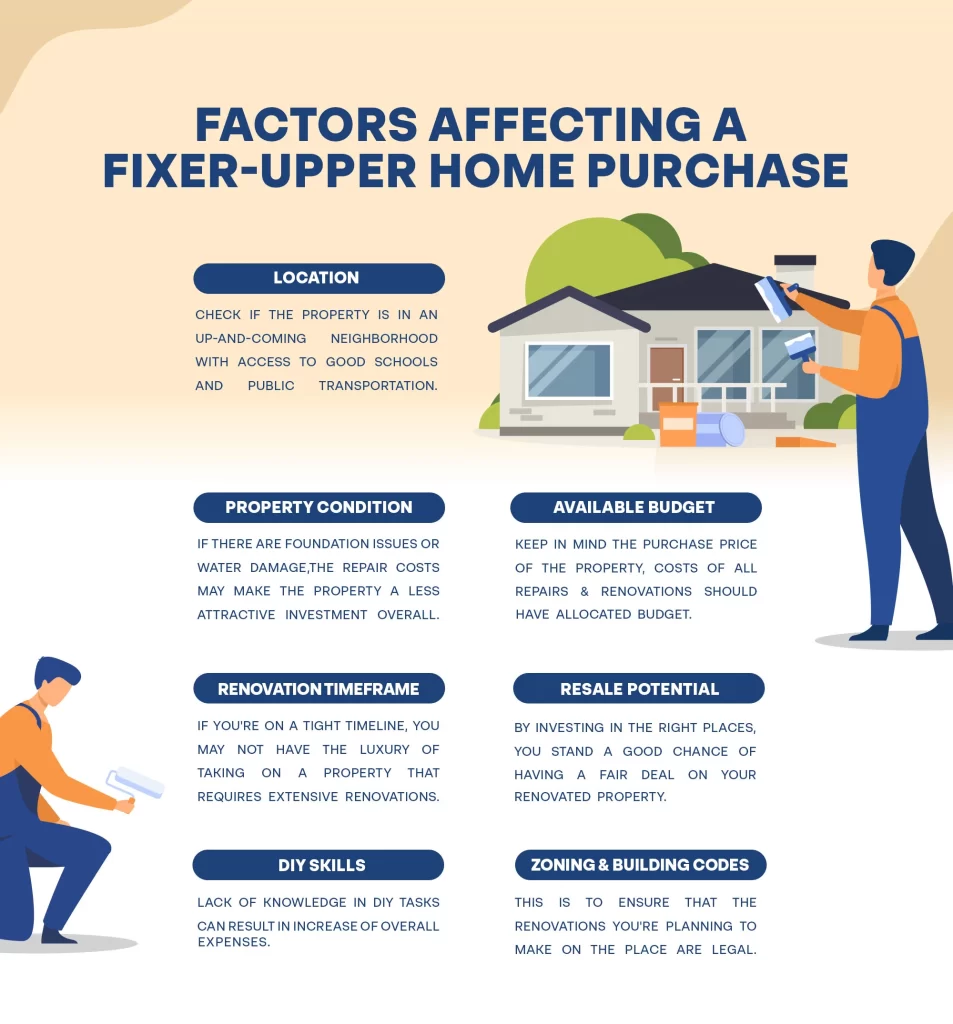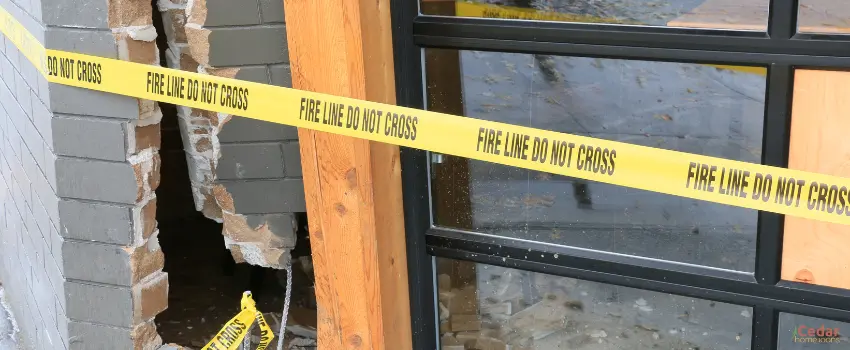Fixer-upper homes are typically properties that need significant repairs and renovations to become habitable. These are often sold at a lower price point than houses that are seen as move-in-ready.
The appeal of buying a fixer-upper home lies in the possibility that the potential buyer can cash in a good profit by increasing its market value through renovations. Another reason why fixer-uppers are also considered by many is because it’s a lot cheaper than move-in ready houses, making it an ideal starter home for young families and those with a limited budget.
Unfortunately, a fixer-upper home purchase can also be a risky endeavor, as it can be difficult to make an accurate estimate of the total cost of repairs and renovations that will be needed. Other than that, the entire process can be time-consuming and stressful.
Factors Affecting a Fixer-Upper Home Purchase
Getting a fixer-upper home can be a smart financial move, but it also comes with its own set of challenges. Before you jump into the world of fixer-uppers, it’s essential that you consider the various factors that can affect your buying decision. These can include the following:
1. Location
As with any property, location is a critical factor to consider before you make a purchase. The place may have the potential for resale once the renovation work is done, but if it’s in a less than desirable location, it may not be worth the investment.
When buying a fixer-upper home, check if the property is in an up-and-coming neighborhood with access to good schools and public transportation. These are the things that will appeal to potential buyers down the road. A great location can make even a small house a worthwhile investment.
2. Property Condition
Get the services of a professional home inspector to identify any significant structural issues that your prospective fixer-upper house may have, particularly foundation problems or water damage. If these are present, the repair costs may make the property a less attractive investment overall.
Additionally, you’ll want to consider the age of the place and whether it has any historical significance. Older homes may require more maintenance and upkeep, so make sure that you’re prepared for the additional expenses.
3. Available Budget
This is one of the most important factors that can affect your chances of buying a fixer-upper house. The budget is not only about the purchase price of the property but also the costs of all necessary repairs and renovations. In this regard, it’s a good idea to have a solid understanding of your financial situation and how much you can realistically afford to spend on both the purchase and the repairs of your fixer-upper.
Also, keep in mind that unexpected expenditures can arise during the renovation process, so it’s best that you have a contingency fund or an alternative financing plan that you can rely on.
4. DIY Skills
If you’re handy around the house and have experience with home repairs, you should be capable of handling some of the renovation work yourself. This can mean significant savings for you.
However, if you’re not confident in your DIY fixer-upper decor abilities, you may need to hire professionals to do the job. This can add to the overall cost of the project, so make sure that you factor this in when preparing your budget.
5. Renovation Timeframe
This is a crucial component of your renovation plan when you buy a fixer-upper house. If you’re on a tight timeline, you may not have the luxury of taking on a property that requires extensive renovations.
Additionally, if you’re planning to live in the property while you’re making the repairs, you might find areas that also need to be fixed, but were not part of the original renovation plan. This could force you to move the project deadline. If you’re willing to do this, you might get a good deal on the property later. However, you’ll need to be prepared for the additional time and expenses.
6. Zoning and Building Codes
Before buying a fixer-upper house, check the local zoning and building codes where the property falls under. This is to ensure that the renovations you’re planning to make on the place are legal. Some areas may have strict zoning and building codes that limit what you can do with the property.
Additionally, you’ll need to obtain all necessary permits before beginning any fixer-upper renovations. Failure to do so can result in fines, so it’s essential that you ensure that everything is in order.
7. Resale Potential
While a fixer-upper is usually bought to have it repaired and then sold afterwards, you have to make sure that you can recoup your investment when you’re ready to sell.
To ensure this, consider the neighborhood and the local real estate market, as well as the type of fixer-upper renovations that you’re planning to introduce. Focus on making improvements that will appeal to potential buyers, such as updated kitchens and bathrooms or additional living space. By investing in the right places, you stand a good chance of having a fair deal on your renovated property.
Key Takeaway
Fixer-upper houses are wise investments but there’s a certain degree of risk involved. This is because of the different factors that will inevitably come into play as you play the fixer-upper game.
Obviously, the budget is one of the most sensitive factors that you’ll have to deal with. Buying a fixer-upper home will necessarily involve money. If you don’t have the funds, you’ll have a hard time moving forward with the project. In this case, a viable option is to seek assistance from reputable financing companies. Many of these offer affordable terms, and if you exercise good judgment, you could end up getting a good deal.
Plan your next investment by consulting with Cedar Home Loans.
If you have plans to purchase a fixer-upper home but your funds are limited, don’t fret. Cedar Home Loans is always ready to help and will gladly support your unique fixer-upper ideas.
For the needed financing, our Dillon home loans team is open for consultation and will promptly process your application once it’s approved. Call us anytime as we want you to succeed.







